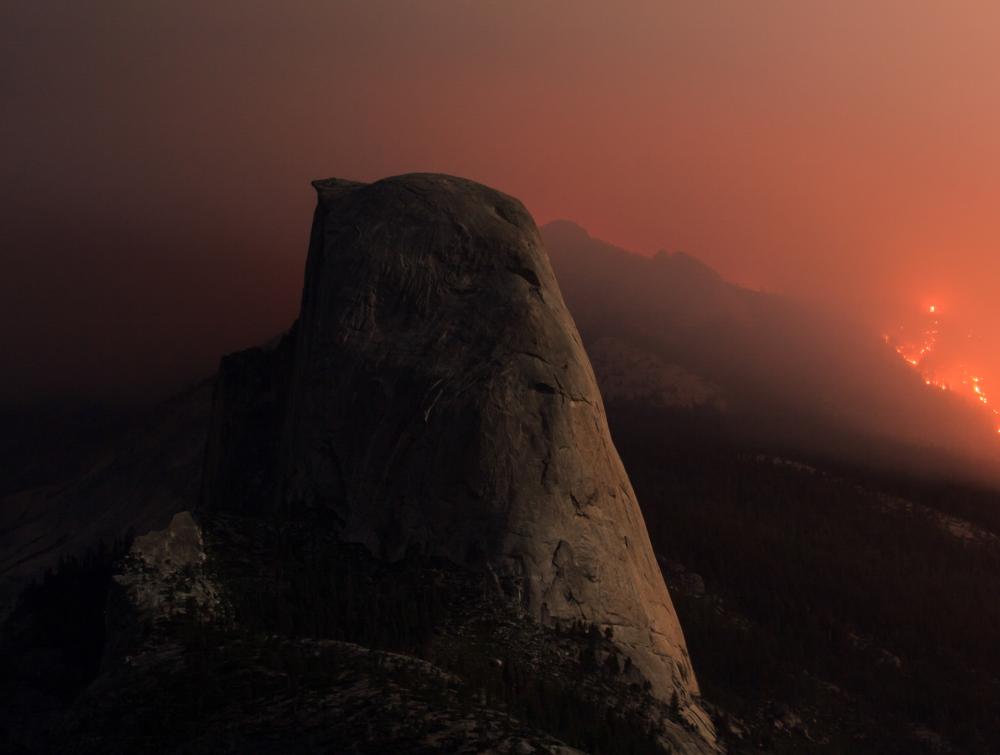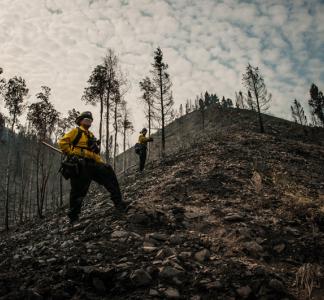Wildfire season highlights danger of forest proposal in Congress

Wildfire in Yosemite National Park, CA.
Elizabeth Hahn, flickr.
Western states face a disastrous wildfire season
A proposed fix to help fight forest fires would actually deepen the crisis.
UPDATE: On Nov. 1, HR 2936 passed in the House of Representatives on a floor vote of 232-188.
Western states currently face another disastrous and expensive wildfire season. As usual, that means the U.S. Forest Service is struggling to keep up, even raiding the coffers of programs that help maintain forest health and reduce the likelihood of future fires. Meanwhile, politicians have offered a rehashed suite of "solutions" that would actually worsen the problem.
The House of Representatives is preparing to vote on a back-from-the-dead bill, the “Resilient Forest Act of 2017” (H.R. 2936), that is among the very worst of the lot.
Contrary to its name, the legislation would undermine longstanding environmental rules in order to increase logging in national forests and sidestep public oversight. And for all that, it would not address the vicious cycle that sees the government constantly scrambling to respond to deadly fires.
How a bad forest bill undermines important environmental review & oversight
H.R. 2936 would punch huge holes in a nearly 50-year-old law called the National Environmental Policy Act, or NEPA. Born of an era when Americans were becoming acutely aware of the fragility of the planet and the ways their behavior could harm it, NEPA mandates that federal government agencies consider the environmental impact of their actions. This includes opening up their plans to public scrutiny (for example, notifying people and letting them weigh in if oil and gas development or a hazardous waste dump is slated for a nearby tract of land).
For decades, political extremists and special interest groups have attacked NEPA, introducing numerous waivers and exceptions to the law, so that potentially damaging projects can be rushed through environmental review or obscured from public oversight. The “Resilient Federal Forests Act" is an example of this anti-conservation approach.
The bill would create NEPA exceptions for a number of activities, most notably opening the door for huge logging projects in national forests. This includes so-called “salvage logging,” which removes burned trees after fires. While this may sound harmless, scientists say that burned trees left in the wake of fires serve an important role in western forests, spurring improved biodiversity and supporting life ranging from shrubs to bears. In fact, removing these trees could actually exacerbate fire damage and increase future risk.
Amid many other destructive provisions, H.R. 2936 also would make it harder for people to challenge harmful forest practices in court, and strip protections from Oregon's Cascade-Siskiyou National Monument.
Real wildfire emergency demands real solutions
While the “Resilient Federal Forests Act of 2017” purports to solve a real problem--climate change-fueled mega-wildfires and the skyrocketing cost of fighting them--it doesn't significantly address the fire funding crisis.
In 2015, the Forest Service announced that for the first time in the history of the agency, it was spending more than half its budget to suppress wildfires--and it estimated that within a decade, more than two-thirds of its budget would go to that purpose, nearly $1.8 billion. Shockingly, two years later, that estimate seems almost optimistic; in September 2017, it was announced that wildfire suppression costs have already shot past $2 billion for the fiscal year.
The modern wildfire season is months longer than it used to be. Things are expected to get even worse. We need a plan to halt the vicious cycle that sees the government constantly scrambling to respond to wildfire, even at the risk of increasing future wildfires. Proposals like H.R. 2936 are not the way to do it. Rather, we need dedicated funding, like what is proposed in the bipartisan Wildfire Disaster Funding Act (S. 1842/ H.R. 2862). We need to manage wildfire disasters the same way Congress budgets for all other natural disasters.



